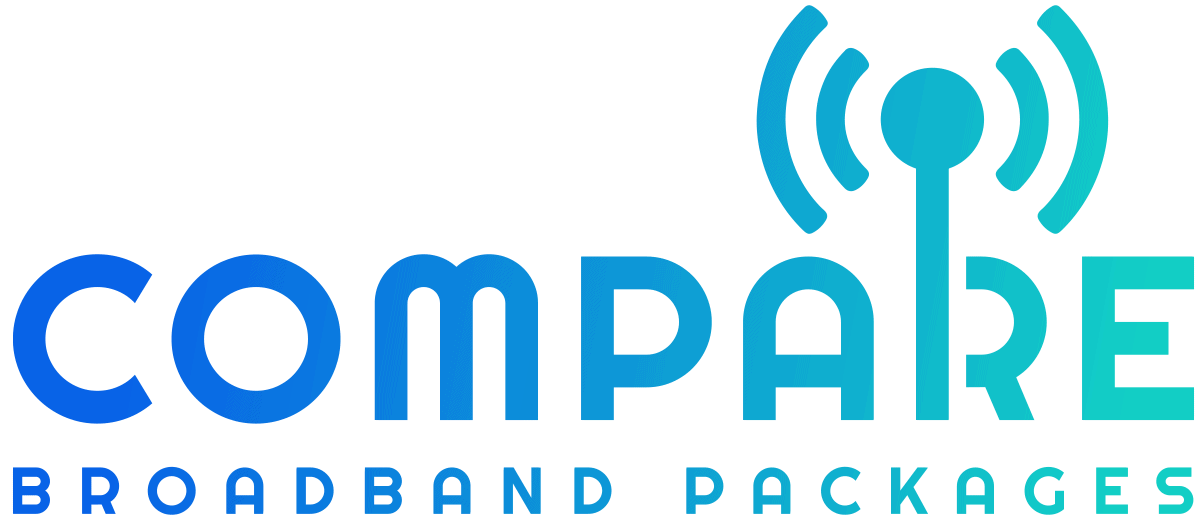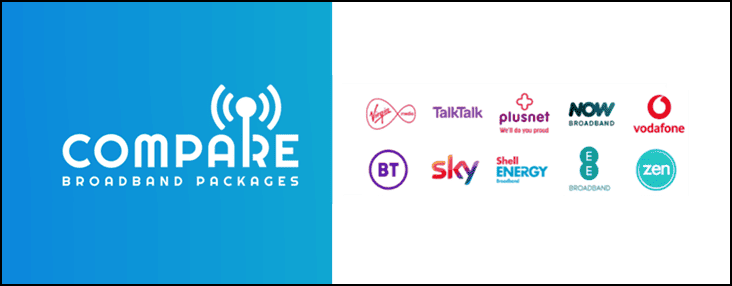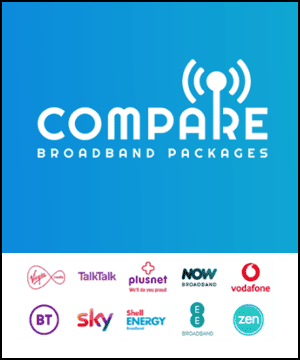
Welcome to the world of smart homes! With the increasing number of smart devices in households, it’s essential to have a reliable broadband connection for seamless communication and control of your gadgets. Smart devices require a high-speed internet connection to function optimally, and this section will explore the broadband requirements for smart home devices and how to ensure a flawless connection for your gadgets in the UK.
Smart homes rely on internet connectivity for communication between devices and with the user’s smartphone or tablet. Therefore, it’s crucial to understand the connectivity needs of each device and choose the right broadband options for your smart home setup. Let’s discuss some key points to ensure you have the best broadband solution for your smart home devices.
Key Takeaways
- Smart homes require reliable and high-speed internet connections to function optimally.
- Choosing the right broadband options for your smart home setup is essential to ensure seamless communication and control of your devices.
- Consider the number of devices connected simultaneously and the required internet speed and bandwidth when selecting a broadband provider.
Understanding the Connectivity Needs of Smart Home Devices
Do you have a smart home setup and want to ensure optimal performance? The key to seamless smart home connectivity is a reliable and fast internet connection. Smart home devices rely on a stable connection to communicate with each other and with your smartphone or tablet. Without it, you may experience lag times, disconnections, and other issues that can impact your overall experience.
When it comes to internet for smart home devices, it’s essential to understand their connectivity needs. Some smart home devices, like security systems and smart speakers, may require constant internet access, while others, such as smart thermostats, may only need occasional access. It’s important to take these differences into account when selecting your broadband plan.
Smart home connectivity is also affected by the size and layout of your home. Larger homes require more Wi-Fi coverage, while multi-story homes need multiple Wi-Fi access points to ensure an equal signal across all floors. It’s crucial to consider your home’s layout and size when choosing your broadband plan.
Internet Speed for Smart Home Devices
High-speed internet is essential for smart home devices to function efficiently. You need to ensure that your internet speed is sufficient to handle the data requirements of your devices. If your plan is too slow, your smart devices may experience lag times, buffering, or disconnections.
It’s recommended to opt for a broadband plan with speeds of at least 50 Mbps. This speed is sufficient for most smart home devices and allows for efficient streaming, gaming, and browsing.
Maximizing Smart Home Connectivity
Maximizing smart home connectivity requires more than just selecting the right broadband plan. To ensure optimal performance, you need to ensure that your Wi-Fi router is placed in a central location in your home. This enables equal signal coverage across all areas of your home.
If you have a larger home or multiple stories, consider using Wi-Fi extenders or mesh networks to eliminate areas with weak signals. Additionally, secure your home network by enabling strong passwords and utilizing encryption methods to prevent unauthorized access and protect your privacy.
Lastly, keep your broadband router and smart home devices up to date with the latest firmware or software releases to ensure compatibility and security.
By understanding the connectivity needs of your smart home devices, choosing the right broadband plan, and maximizing smart home connectivity, you can enjoy a seamless smart home experience. With the right internet for smart home devices, you can unlock the full potential of your smart home setup.
Choosing the Right Broadband Options for Smart Homes
When selecting broadband options for your smart home, there are a few factors to consider to ensure your devices function optimally. Firstly, you need to determine the speed and bandwidth requirements of your smart home devices. Streaming high-definition content, video conferencing, and online gaming may require higher speeds.
Secondly, check if your broadband provider offers specific packages or services tailored for smart homes. Look for features like low latency, unlimited data, and dedicated tech support for smart home connectivity issues. Some providers even include smart home devices as part of their offerings.
Moreover, you may consider a bundled package that includes broadband, TV, and phone services for a more comprehensive solution. These plans may offer better value and simplify billing.
In addition, some broadband providers offer advanced features such as parental controls, VPN, and cloud storage, which may be useful for families or businesses using smart home devices.
Overall, the best broadband options for smart homes provide reliable connectivity, fast speeds, and tailored features that meet your specific needs. Consider the offerings and pricing of various broadband providers in the UK to choose a plan that best suits your smart home setup.
Smart Home Broadband Providers in the UK
If you’re looking for reliable and high-speed broadband for your smart home devices in the UK, there are several providers to choose from. Consider their offerings, speeds, pricing, and customer reviews before making a decision that best suits your requirements.
| Broadband Provider | Package | Speed | Price |
|---|---|---|---|
| BT | BT Smart Hub + Fibre | 50 Mbps – 1 Gbps | £39.99 – £59.99 per month |
| Virgin Media | M350 Fibre Broadband | 362 Mbps | £43.99 per month |
| Sky | Sky Broadband Superfast | 59 Mbps | £25.00 per month |
| TalkTalk | Faster Fibre | 38 Mbps – 67 Mbps | £24.00 – £28.00 per month |
| Plusnet | Unlimited Fibre Extra | 66 Mbps | £29.99 per month |
These broadband providers are known for their reliable smart home connectivity and offer various packages suitable for different smart home setups.
BT’s Fibre package provides speeds from 50 Mbps to 1 Gbps, making it a suitable option for smart homes with high-speed requirements. Virgin Media’s M350 Fibre Broadband offers lightning-fast speeds of 362 Mbps, ideal for homes with several connected devices. Sky’s Superfast package provides speeds of up to 59 Mbps and is an affordable option for smaller smart homes. TalkTalk’s Faster Fibre package offers speeds from 38 Mbps to 67 Mbps, catering to different speed requirements. Plusnet’s Unlimited Fibre Extra package provides speeds of 66 Mbps and unlimited data, a suitable option for large households with multiple connected devices.
Compare the offerings of these broadband providers in your area and select the one that best suits your needs. By choosing the right broadband provider, you can ensure a seamless smart home experience and enjoy the convenience and automation that smart technology offers.
High-Speed Broadband for Smart Home Devices
When it comes to smart home devices, a reliable and high-speed broadband connection is essential for optimal performance. With a fast internet connection, you can enjoy seamless streaming, quick response times, and efficient control of your devices.
To ensure the best experience, look for broadband plans that offer speeds of at least 50 Mbps for your smart home setup. Keep in mind the number of devices connected simultaneously and the bandwidth requirements of each device.
You can compare broadband options from various providers to find the best broadband for smart homes. Consider the pricing, speed, and customer reviews before making a decision. Some of the popular broadband providers known for their reliable smart home connectivity in the UK include BT, Virgin Media, Sky, TalkTalk, and Plusnet.
Investing in high-speed broadband for your smart home devices is essential for a seamless smart home experience. With the right broadband solutions, you can fully embrace the convenience and automation that smart technology offers.
Maximizing Smart Home Connectivity
To ensure your smart home devices are always connected, there are a few additional steps you can take to maximize your connectivity. By doing so, you can optimize your smart home experience and unlock the full potential of your devices.
Placing your Wi-Fi Router
The placement of your Wi-Fi router is crucial for even coverage throughout your home. Ideally, it should be placed centrally, away from other electronics or obstructions. If possible, elevate it to improve signal strength.
Extending your Wi-Fi Network
For larger homes, or for areas where the signal may be weaker, consider using Wi-Fi extenders or mesh networks. These devices can help eliminate areas with weak signals, providing a smoother connectivity experience for your devices.
Securing Your Network
Securing your Wi-Fi network is essential to ensure your personal data and devices remain protected. Make sure you enable strong passwords and utilize encryption methods to prevent unauthorized access to your network.
Keeping Devices Updated
Keeping your broadband router and smart home devices updated with the latest firmware or software releases is essential to ensure compatibility and security. Always check for available updates to your devices and update them regularly.
Choosing the Best Broadband Solution
Consider all available broadband solutions for your smart home and choose the one that best suits your needs. Look for packages that offer high-speed internet, unlimited data, and dedicated tech support for smart home connectivity issues. By selecting the best broadband for your smart home devices, you can enjoy a seamless and optimized smart home experience.
Conclusion
You now know how important it is to have a reliable and high-speed broadband connection for your smart home devices. By understanding the connectivity needs of your gadgets and choosing the right broadband options, you can ensure a seamless smart home experience. Make sure to compare broadband providers in the UK and select the one that best suits your requirements.
To maximize smart home connectivity, consider the placement of your Wi-Fi router and the use of extenders or mesh networks. And don’t forget to secure your home network with strong passwords and encryption methods, as well as updating your router and smart home devices regularly.
With the right broadband for your smart home devices, you can fully enjoy the convenience and automation that smart technology offers. Embrace the future and make your home a smart one today!
FAQ
Q: What are the broadband requirements for smart home devices?
A: Smart home devices require a stable and fast internet connection to function efficiently. It is important to have reliable broadband with high speeds and adequate bandwidth.
Q: How do I choose the right broadband options for my smart home?
A: When selecting broadband for your smart home, consider the speed and bandwidth requirements of your devices. Look for broadband providers that offer specific packages tailored for smart homes, with features like low latency and unlimited data.
Q: Which broadband providers are known for reliable smart home connectivity?
A: In the UK, popular broadband providers for smart home connectivity include BT, Virgin Media, Sky, TalkTalk, and Plusnet. Compare their offerings, including speed, pricing, and customer reviews, to make an informed decision.
Q: How fast should my broadband be for smart home devices?
A: For a seamless smart home experience, look for broadband plans that offer speeds of at least 50 Mbps. This ensures quick response times, smooth streaming, and efficient control of your devices.
Q: How can I maximize smart home connectivity?
A: To optimize smart home connectivity, place your Wi-Fi router centrally in your home and consider using extenders or mesh networks to eliminate weak signal areas. Secure your home network with strong passwords and keep your broadband router and smart devices updated.









